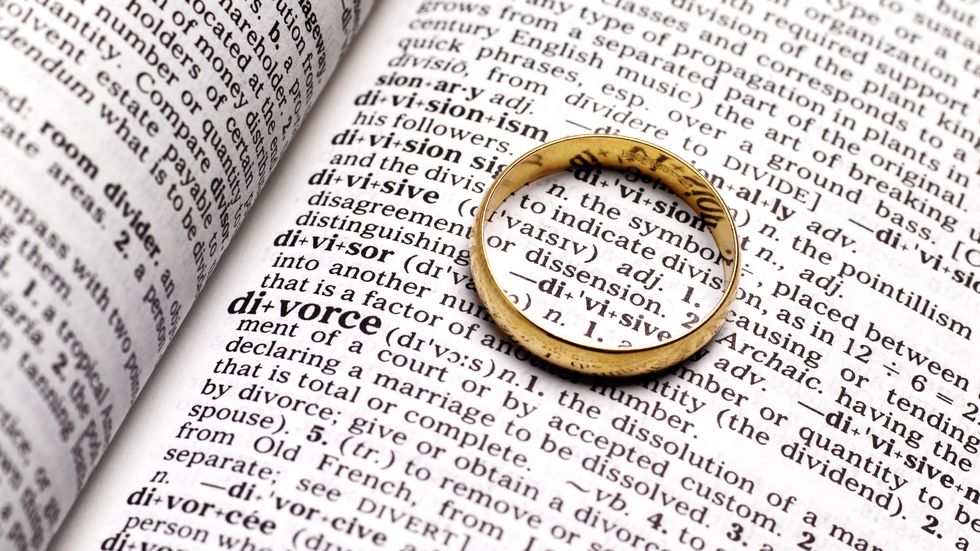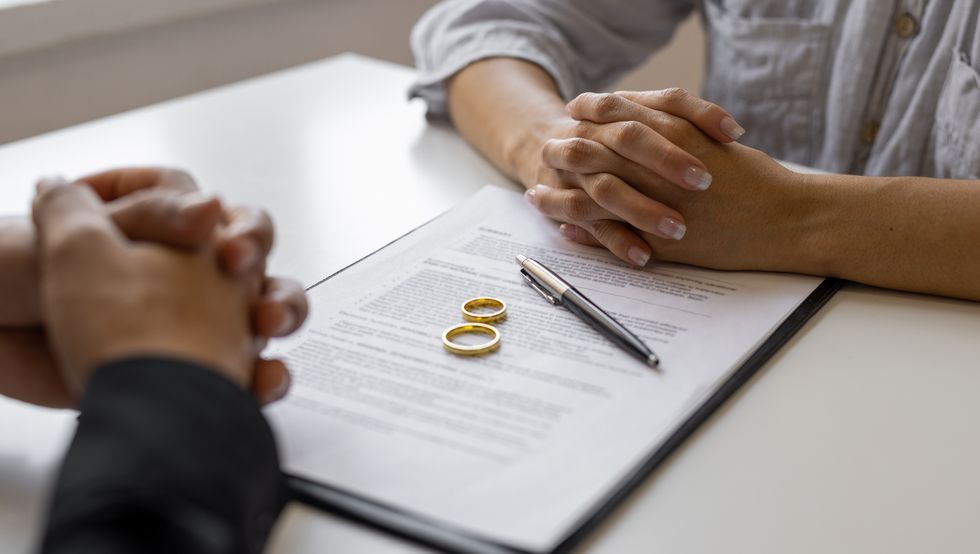Second only to the death of a loved one, divorce is frequently cited as one of the most traumatic life events you can go through. Even if it has been clear for some time that the relationship is over, the end of a marriage is likely to be painful and it can be made much worse if there are bad feelings on either side.
Recent changes to the divorce laws in England and Wales aim to make the process less conflict-prone by allowing couples to end their marriage jointly and avoid the 'blame game'.
According to figures from the Office of National Statistics (ONS), there were 80,057 divorces granted in England and Wales in 2022, which was a 29.5% decrease compared with 2021 (113,505 divorces) and the lowest number of divorces since 1971. The average length of a marriage before divorce was slightly up on previous years, at 12.9 years.
What to read next
No-one enters into divorce lightly, but if you have taken the decision to split for good, here's what you can expect.
Can I get a divorce?
You can get divorced in England or Wales (there are different rules in Scotland and Northern Ireland) if you come under the jurisdiction of the English or Welsh courts and all of the following are true:
- you’ve been married for over a year
- your relationship has permanently broken down
- your marriage is legally recognised in the UK (including same-sex marriage)
It usually takes at least seven months for a divorce to be finalised.
What has recently changed regarding divorce rules?
The Divorce, Dissolution and Separation Act 2020, which came into effect on 6 April 2022, was a major shake-up of the existing rules around divorce in England and Wales. While previously, there were five listed 'fault-based' options on legal documents as the reason for the divorce – adultery, unreasonable behaviour, desertion, two years' separation with consent or five years' separation – the new 'no fault' option means that the need to blame each other when going through a divorce will be eliminated.
Also gone, under the new Act, is the option to contest a divorce unless on legal grounds. The new rules also allow couples to jointly give notice that they are going to divorce or end their civil partnership, rather than just one person making the application, another change designed to make the process less combative.
After applying for a divorce, there are two main stages in the process – getting a conditional order (previously known as a decree nisi) and then the final order (previously the decree absolute). If you want a legally binding arrangement for dividing money and property, then it is best to apply to the court for this before you apply for a final order or decree absolute, although couples can in fact apply for this even afterwards. By applying beforehand though, you can avoid unforeseen financial consequences, particularly in relation to pensions. The court has the power to make financial orders upon the grant of the conditional order.
How much does it cost to get divorced in the UK?
There’s a £593 fee for applying for a divorce – you might be able to get help with fees if you are on benefits or a low income – and there will also be solicitor fees if you hire one.
Is divorce mediation right for you?
If you and your spouse need help sorting out issues around children, property or money, you could look into enlisting a mediator – essentially, a third party who won’t take sides and whose job is to help parties reach an agreement.
You can search for mediators near you on The Family Mediators Association website. You can also find mediators through Resolution, a community of family justice professionals.
What is the first step when you want a divorce?
The Government has a handy seven-step guide to the process of getting divorced. The first step it recommends to take is to get support and counselling to help you through the divorce process. You can talk to a Relate marriage guidance counsellor or find a counsellor to talk to online, on the phone or in person via the Counsellor's Directory. Even if you are planning to arrange things amicably between yourselves, it might be a good idea to have a preliminary chat with a divorce lawyer to help you understand your legal position and what arrangements you will need to make for your house, your finances and any children.
How can I get a quick divorce?
Thanks to the new divorce rules, which have done away with the need to blame one side's behaviour or to be separated for a period of time, and have removed the ability to contest a divorce, a divorce can be handled in around half a year. There's no legal requirement to get a solicitor involved and if both sides agree on how the finances are going to be split, then the process can be fairly smooth.
There is a limit to how quickly you can get a divorce, however. There's a mandatory period of 20 weeks between applying for a divorce and getting a conditional order – previously called a decree nisi. After this has been granted by the court, you will then have to wait a further 43 days (6 weeks and 1 day) after it’s been granted, before you can apply for a final order – previously called the decree absolute. Once you get this, then you are no longer married.
















